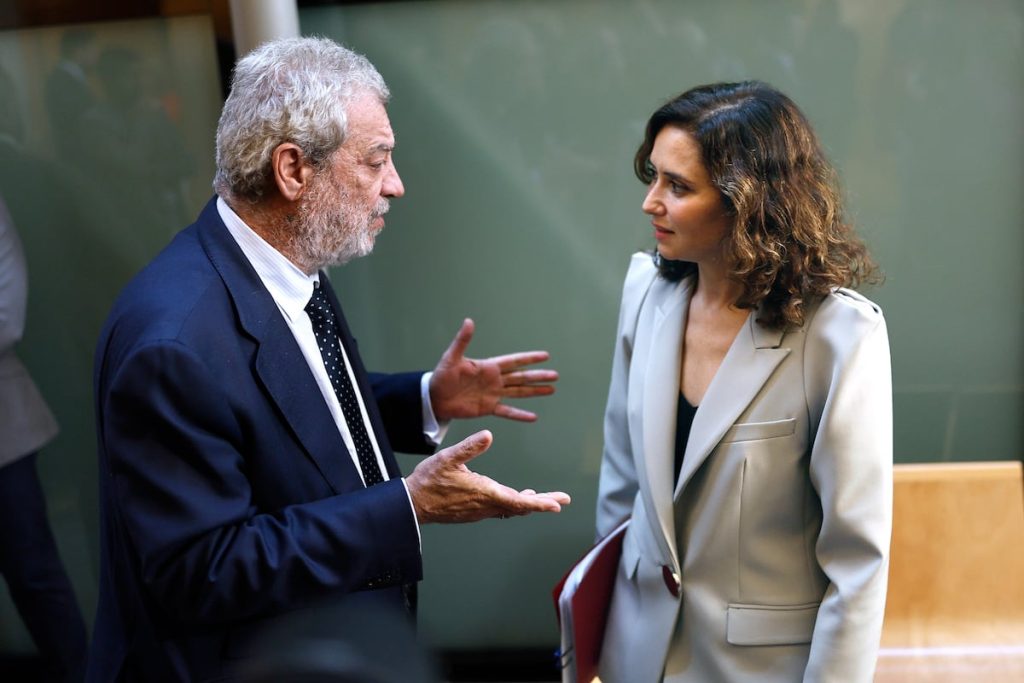The government of Isabel Díaz Ayuso (PP) was aware of the written attempts made by the partner of the president of the Community of Madrid, Alberto González Amador, to avoid prison for the two tax offenses attributed to him by the Madrid prosecutor’s office, punishable by between two and 10 years in prison. Ayuso and her chief of staff, Miguel Ángel Rodríguez, provided misleading information about these events and leaked one of the five supposedly confidential documents to the media. The public statements made by Ayuso or the leaks from her chief of staff were related to these five emails between González Amador’s lawyer and the Madrid economic crimes prosecutor’s office to discuss a proposed agreement that would prevent the entry into prison of the boyfriend of the Madrid president. Ayuso and Rodríguez disseminated distorted information about events that they could only have known about through these confidential communications, according to the documentation obtained by EL PAÍS.
In February 2023, Ayuso’s partner admitted to the fraud and attempted to rectify it, but his tax advisor informed him that it was no longer possible. The lawyer of González Amador admitted in a document sent to the Tax Agency that the deductible expenses invoice they submitted for 895,000 euros was false but that they were willing to file a complementary declaration to rectify the fraud. Despite his tax advisor warning him that this rectification could no longer be done due to an ongoing tax inspection, González Amador paid what was owed through a prohibited rectification in July 2023, but was eventually refunded the excess amount paid by the Tax Agency. The process continued with the trial for the two supposed tax offenses.
On February 2, 2024, the sequence of emails between González Amador’s lawyer and the Madrid prosecutor’s office began, with the lawyer expressing willingness to reach a criminal agreement admitting the offenses committed. The response from the prosecutor indicated a readiness to discuss the matter further once the inspection for 2022 had been completed. However, Ayuso misrepresented the facts on March 13, claiming that it was Hacienda that owed money and not her partner, and accused the state powers of targeting her partner due to their relationship. The prosecutor later clarified in court that the investigation was based solely on the potential tax offenses committed.
On March 13, 2023, Ayuso repeated the false claim that Hacienda owed almost 600,000 euros to her partner, leading to the return of 552,000 euros to him by the tax agency. Her chief of staff, Miguel Ángel Rodríguez, further spread misinformation by leaking an email and providing a false version of events to the media. The fiscal superior of Madrid later expressed hope that the Bar Association would take action against those who violated confidentiality in this case.
The complexities of the legal and tax proceedings involving Ayuso’s partner have shed light on misleading statements made by government officials and the challenges of maintaining privacy and transparency in such high-profile cases. The actions taken by the Madrid prosecutor’s office in response to the misinformation from Ayuso’s government have underscored the importance of upholding legal processes and ethical standards in addressing fiscal offenses. It remains to be seen how the legal and disciplinary aspects of this case will be resolved and what implications it may have for future investigations involving public figures and their associates.















